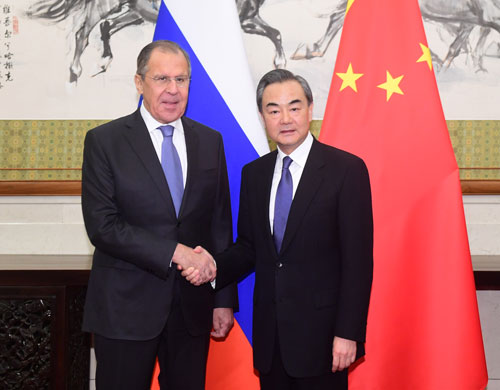The mainstream media is doing its job. As an incremental part of Washington’s all-guns-blazing approach vis-a-vis China, they have kind of persuaded the masses in the West of who is the culprit of the global pandemic and a grave danger for the liberal democratic way of life in general. The propaganda is designed to help isolate China economically and geopolitically, as the top agenda of the White House and Congress hawks.
The health crisis and Donald Trump’s heavy-handed management of it was probably the final catalyst in an already raging epic war to accelerate America’s foray against China. However, Beijing is painfully aware of its own history and the country enduring subjugation of colonial powers, and it looks to be proving a worthy adversary. The supposedly awe-inspiring non-certification of Hong Kong being autonomous from the mainland was soberly met by China approving its law in the face of it yesterday.
Whatever the media is devising as axiomatic truth on the matter, China is not alone. Of course, it is not being reported on the likes of CNN, but Russia’s foreign minister Sergey Lavrov strongly came out in support of China the other day. He let it be known that the Kremlin viewed the amendments to the Hong Kong law as China’s domestic affair and that it was absolutely unacceptable to blame China for the spread of the health crisis, let alone the claim that China should pay economic damages.
Lavrov siding with China is obviously not coincidental. Russia’s prolonged standoff with America including the sanction regime is already something for the history books that might one day document Washington’s stance as one of the biggest geopolitical blunders. It has driven Moscow and Beijing toward each, and the two powers have for the past four years enhanced their cooperation on every front, from trade to military alignments to their backing each other in the standoff with Washington.
As I have mentioned a number of times before, no one in the US capital seems to want to listen to a sage like Henry Kissinger who has explicitly and frequently warned the Trump administration of taking on Russia and China at the same time. He should know what he is talking about. As the doyen of American foreign policy for decades, he voices sensible advice that has its roots in policy experience gathered across the better part of the last century.
The West may scoff at Russia backing China, but it too is not alone. Europe may still be perceived to be tied down in its transatlantic allegiance despite Trump’s derogatory and aggressive stance with the Old Continent, but the rumblings have become more audible. Leaders in Brussels and the various capitals have been forced to rethink the old world order that they were so used to but Trump destroyed. America First has left the globe leaderless.
At the same time, Asia has become increasingly important for everyone, and the pandemic may well coincide with the departure of the American century and the ascent of the Asian one. Europe will ultimately have to choose what side will be more important for its own path and deviate from their strategy of trying to suit everyone, which by the way is a thing of the past anyway and hardly implementable as long as Trump is president.
Some countries are not impressed with the American postures in any case, and it is very conceivable that the likes of Hungary and Italy could more easily divert from the Union and be swayed into the Chinese sphere of influence than others. But if you care to look hard enough, France, for example, has according to Chinese state media also tried to curry favours with Beijing this week, by signalling that its government respects China’s national sovereignty and has no intention to interfere in Hong Kong affairs.
And if France does this, an economically more dependent Germany will be more likely to follow suit. Also, in the wake of the health crisis, the Franco-German axis seems to have recovered, with the emergence of the corona-driven 1/2 trillion stimulus package and all, and the emergence of solidarity with China could well differentiate Europe from America’s belligerence going forward. A lot depends on who will sit in that chair on 1600 Pennsylvania Avenue from January.
